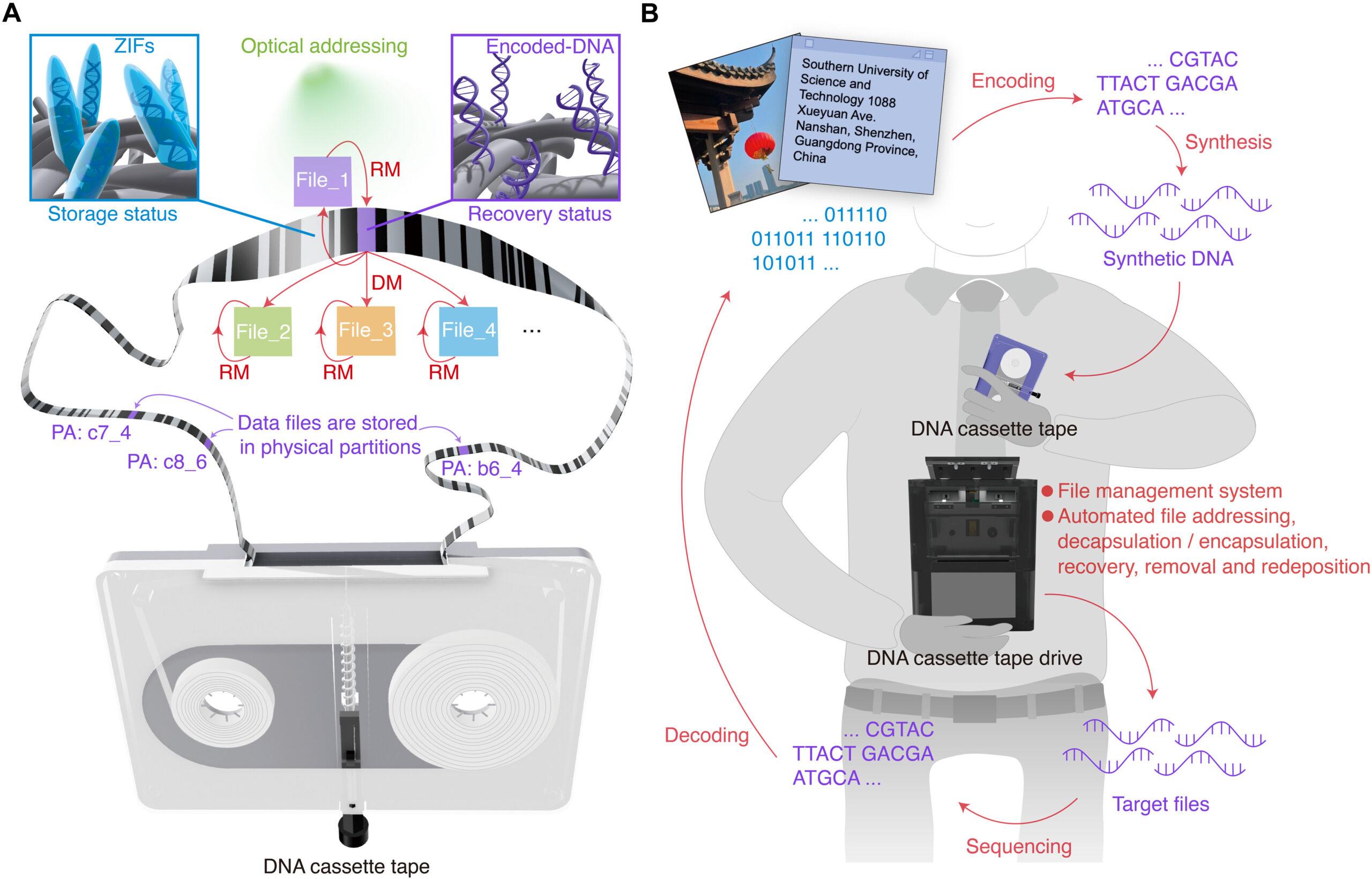- Chinese scientists design a DNA band that could store data for centuries
- Prototype demonstrated with an image of 156 ko lantern, but the writing remains slow and costly
- The study suggests that the maximum theoretical capacity is equivalent to around 80 million DVDs per kilometer
Chinese scientists, led by Professor Xingyu Jiang of the Chinese University of South Sciences and Technology in Shenzhen, offer a DNA cassette that stores large amounts of data in a compact format.
The objective is a lasting portable support for the archiving of data that could potentially last centuries.
In an article published in Scientific advancesThe team offers a moderate polyester nylon ribbon with bar codes which create 5.45×10 ^ 5 partitions addressable by 1000 meters. A reader for this could locate up to 1570 scores per second.
Not exactly fast
The data would be written in the form of synthetic DNA strands deposited in each score, then sealed under a layer of Imidazolate Protective Zéolitic.
To read files, the partition chosen is soaked in sodium hydroxide and the sequenced solution. The coating could be deleted and reapposed to update the files, according to the researchers.
A prototype reader manages addressing, recovery, deletion, redeployment and reaches in a closed loop.
In a demonstration, the system stored 156.6 ko and rebuilt a lantern image.
The complete sequence of three recoverys and a redeployment lasted approximately 150 minutes.
The team says that the collapse of certain stages evenly on the partition could reduce this to around 47 minutes, but even if it is not exactly fast.
The real measured load is equivalent to around 74.7 GB per km today, according to the authors.
Their extrapolation suggests a theoretical ceiling nearly 362pb per km, which is roughly the equivalent of 80 million DVDs.
Using the measured figure, a strip over the length of a LTO-9 coil would contain approximately 77 GB, well below the native capacity of 18 TB of LTO-9, but the theoretical ceiling would involve around 375PB for a similar length.
The writing speeds remain the big problem because the synthesis of DNA is slow and costly, so filling even a fraction of one kilometer would take a lot of time at the current rates.
The band partitions take care of the filing of numerous operations and recover many operations, so that the files can be recovered several times, deleted and replaced.
This brings the device closer to a managed storage system than an archive at a blow.
The protective layer hardens the medium against heat and enzymes and modeling from accelerated aging suggests about 345 years of retention at room temperature and much longer in colder environments.
The concept could act as a useful bridge between cold archiving and warm access.
Chemistry limits the flow today, but scientists are convinced that the mechanical format could work with future faster DNA writing methods.
Via The register




